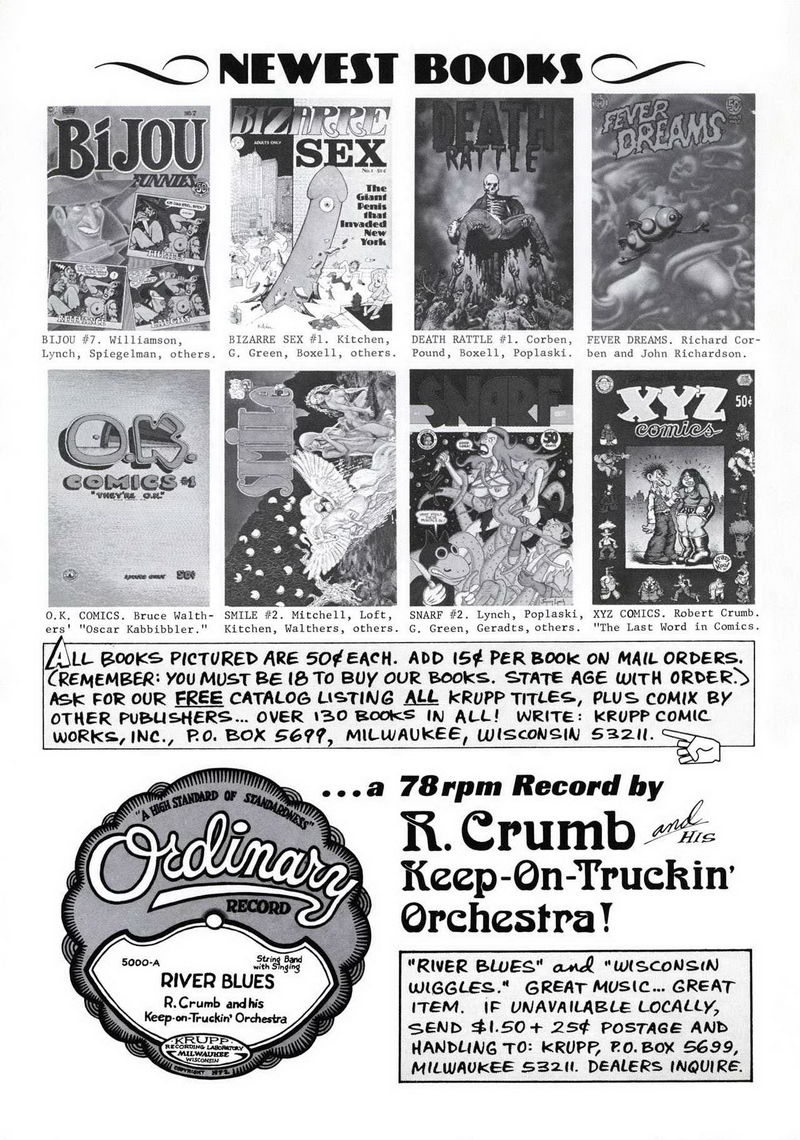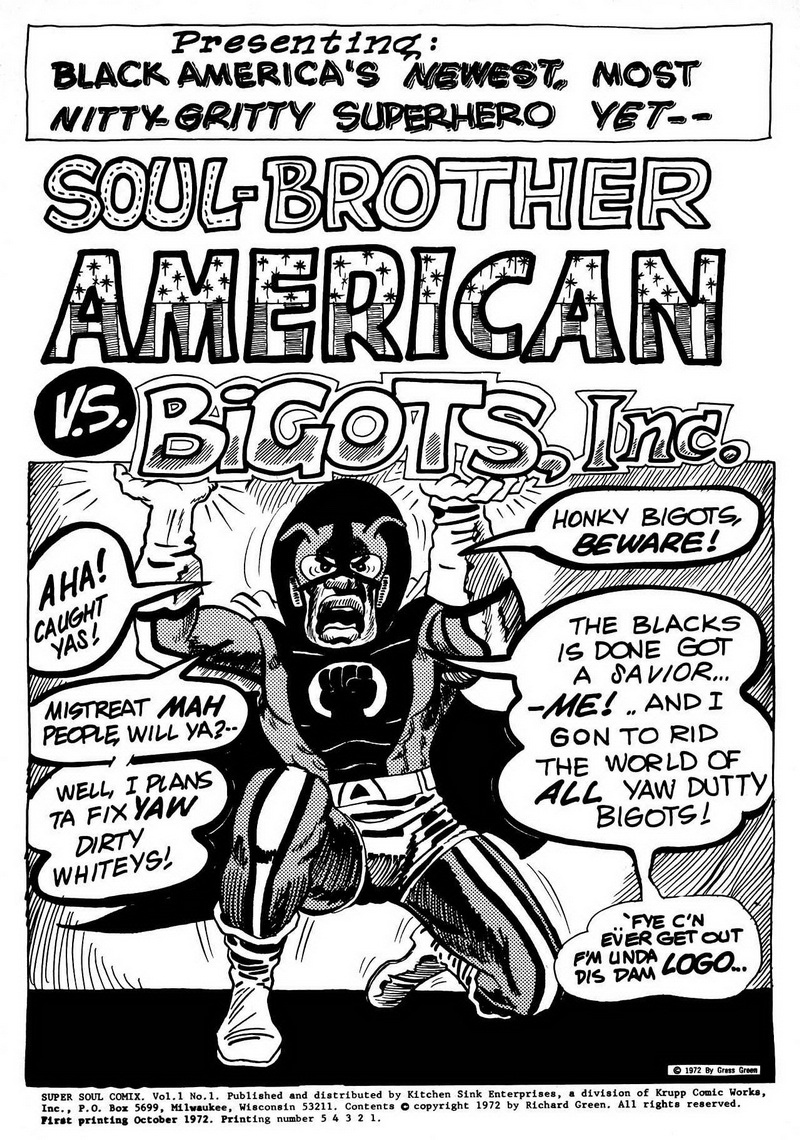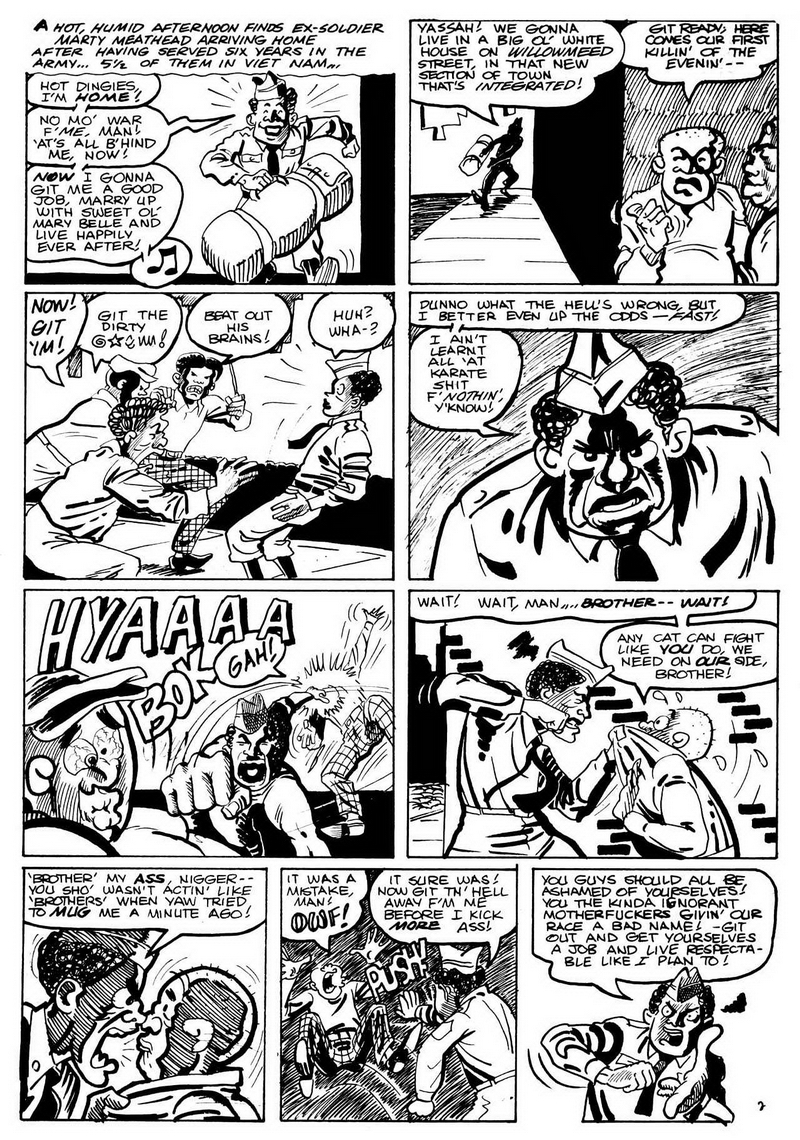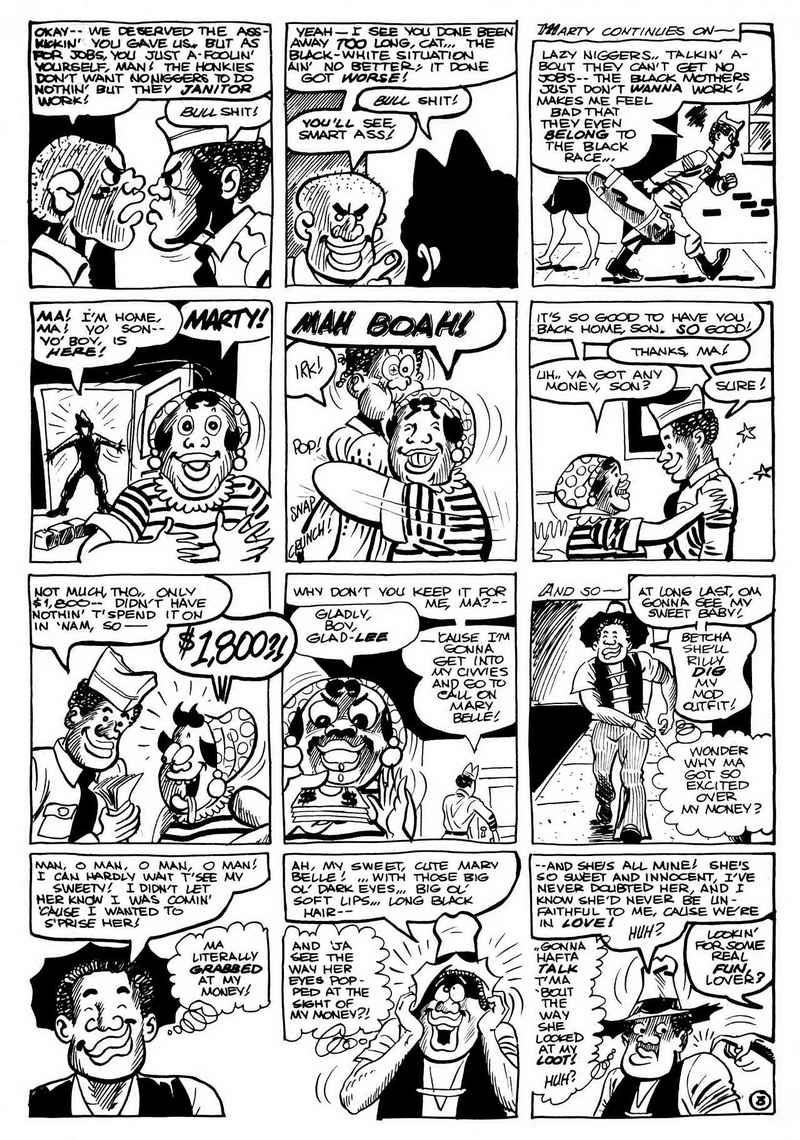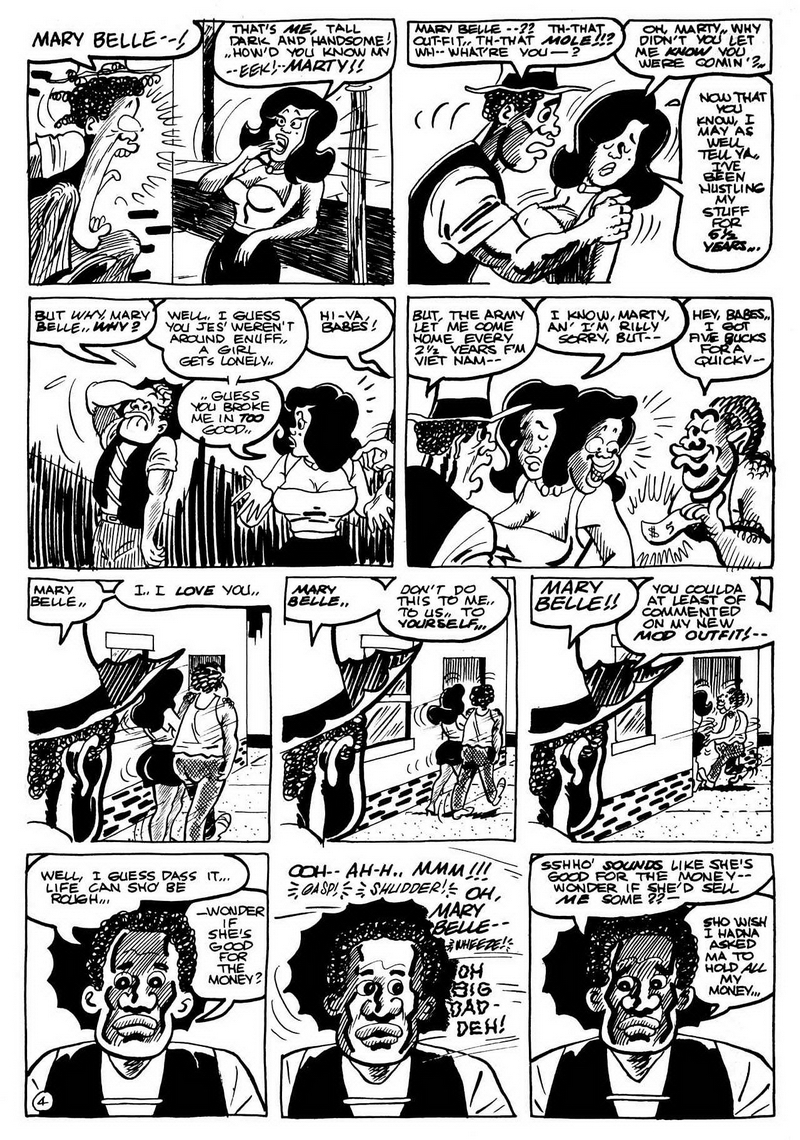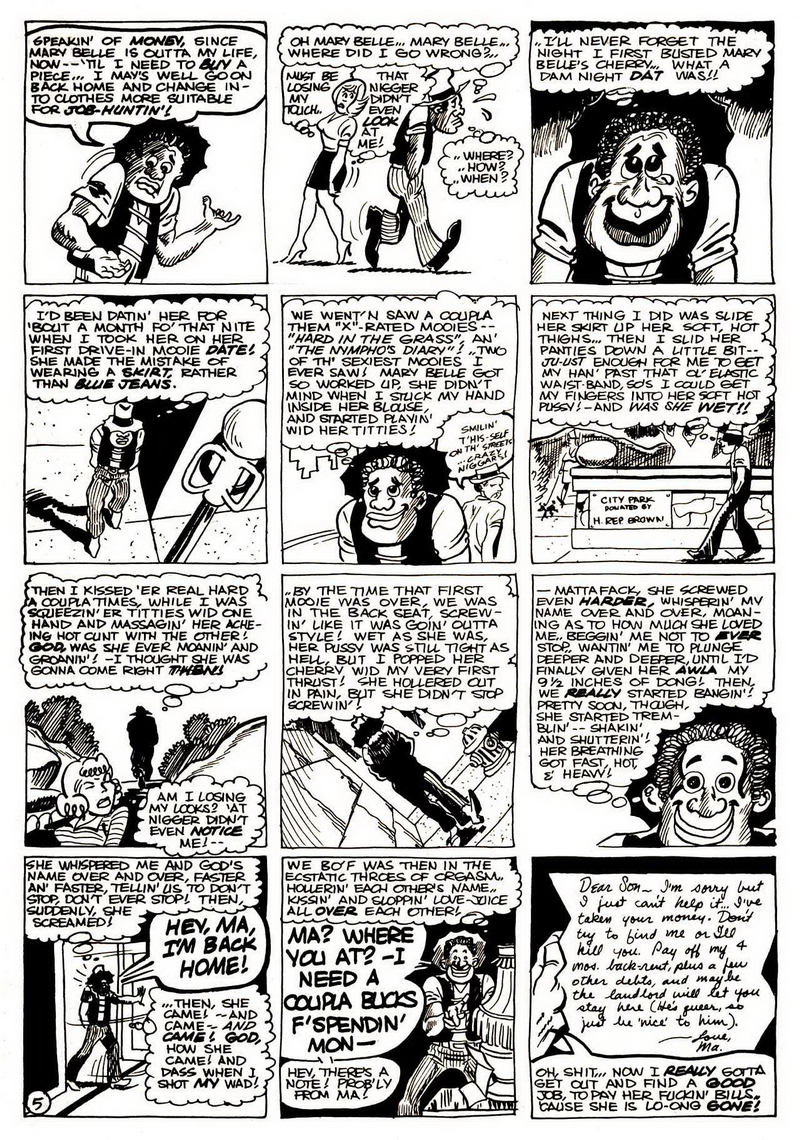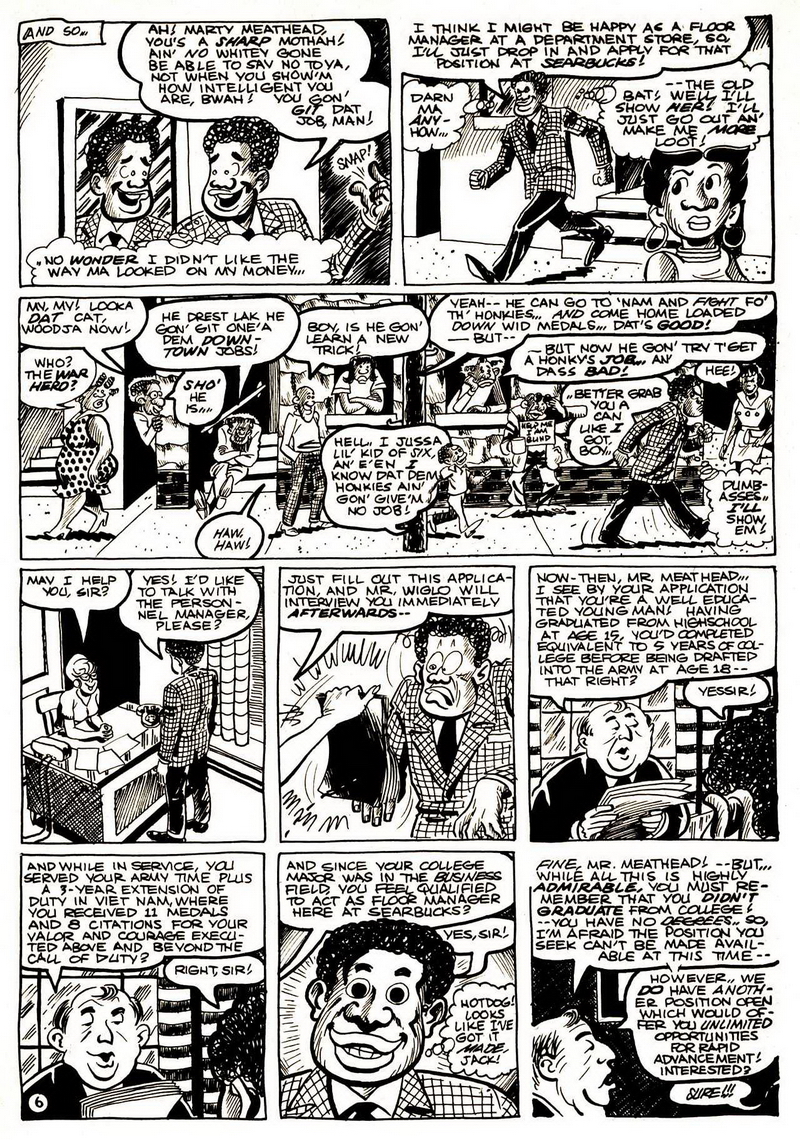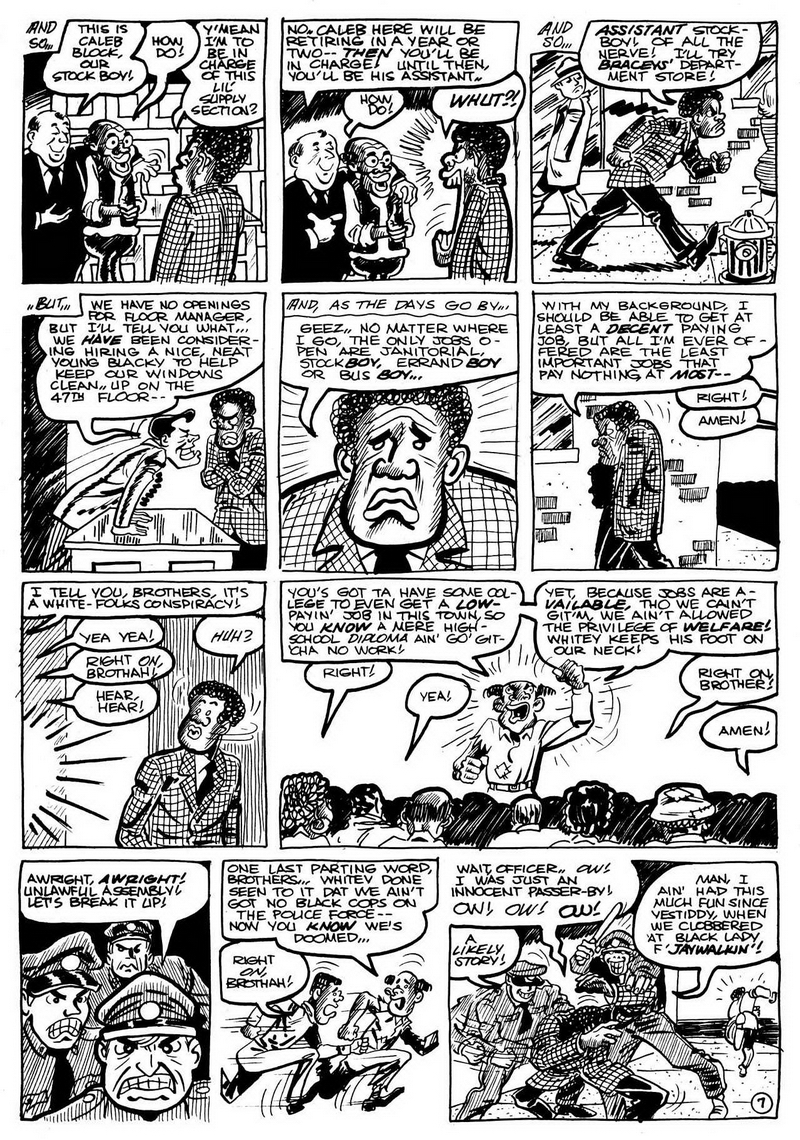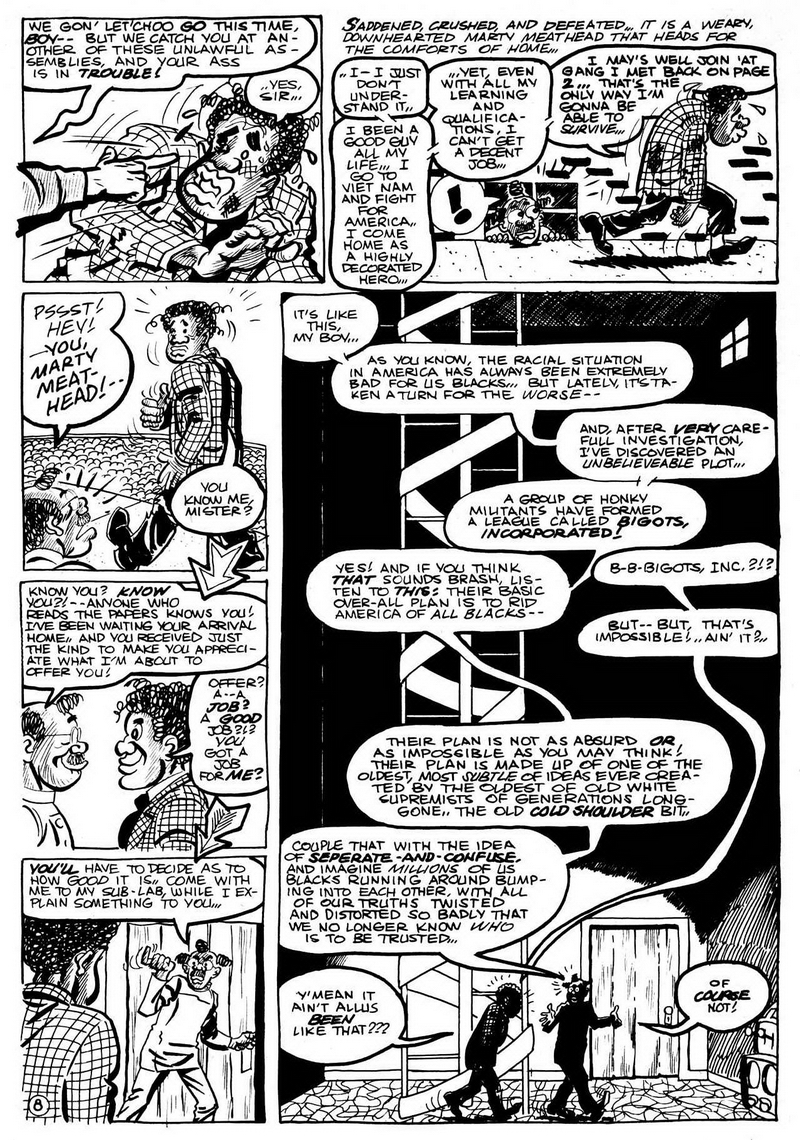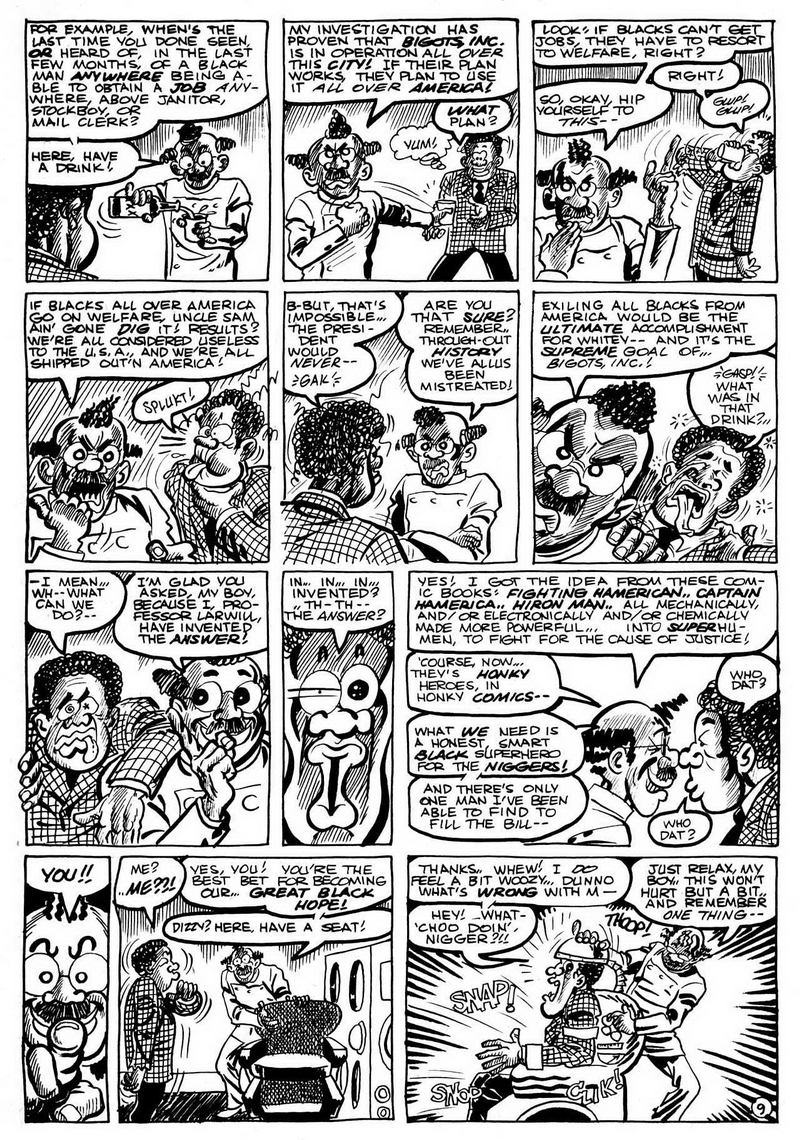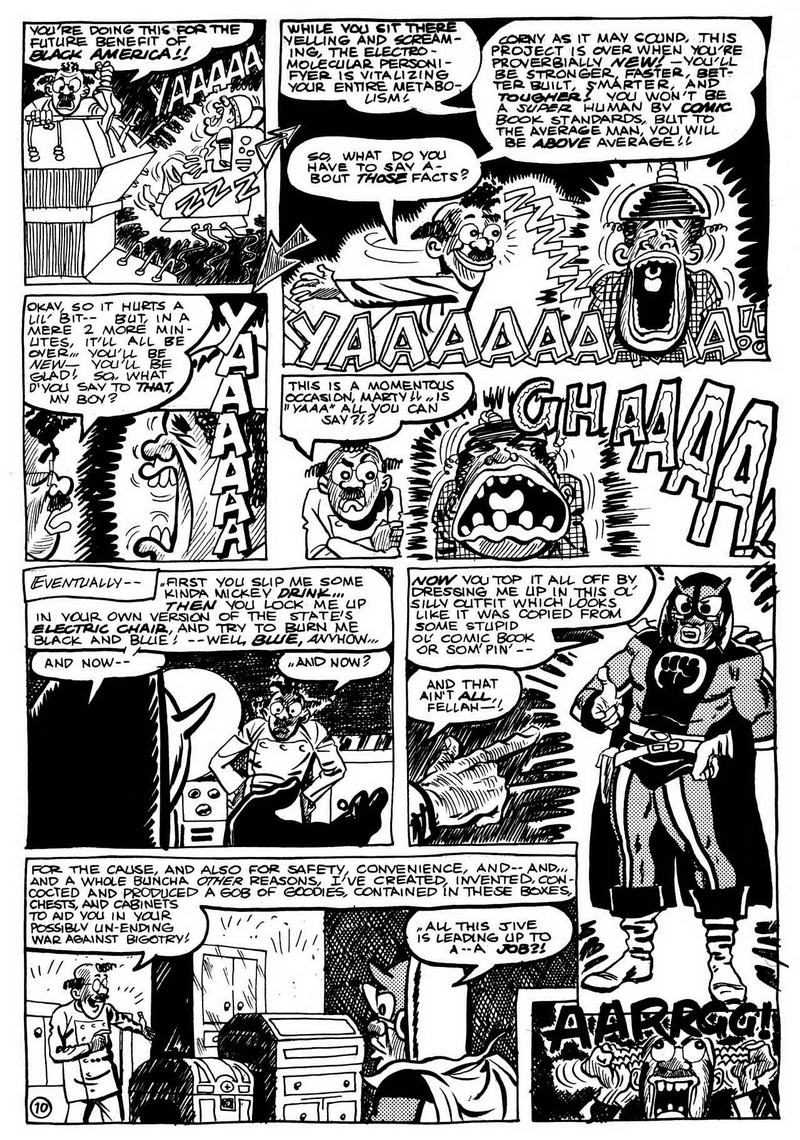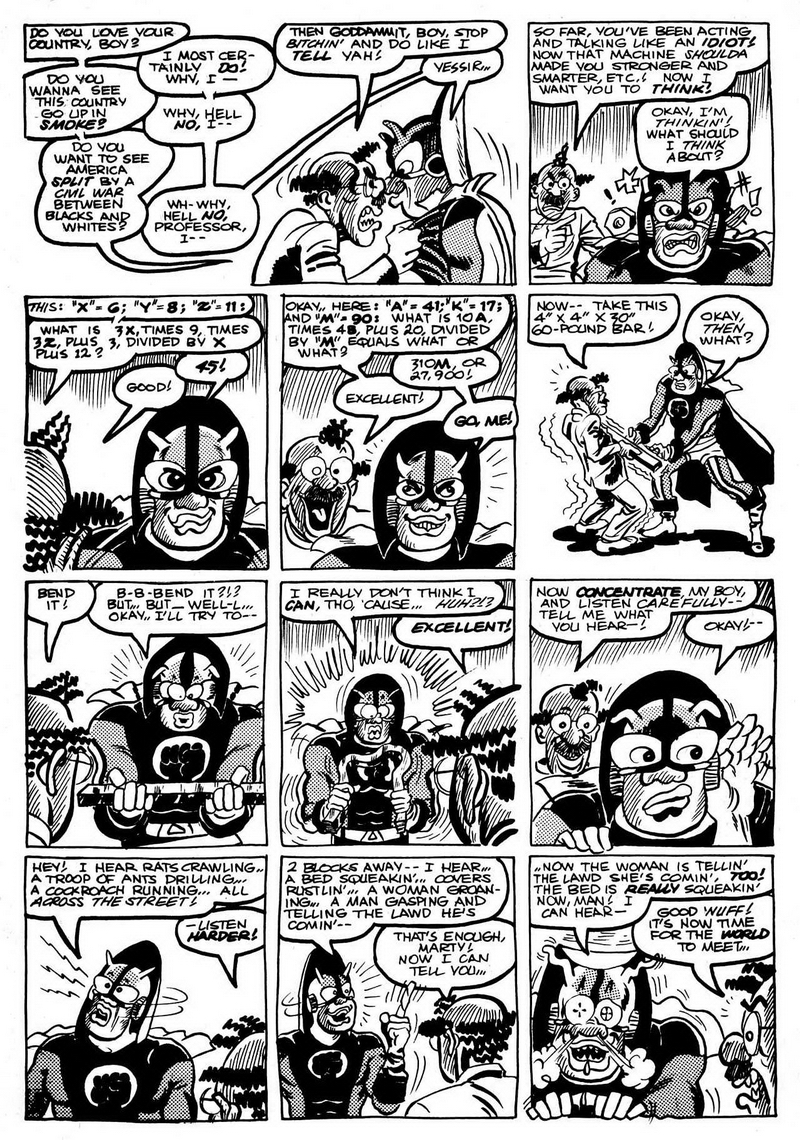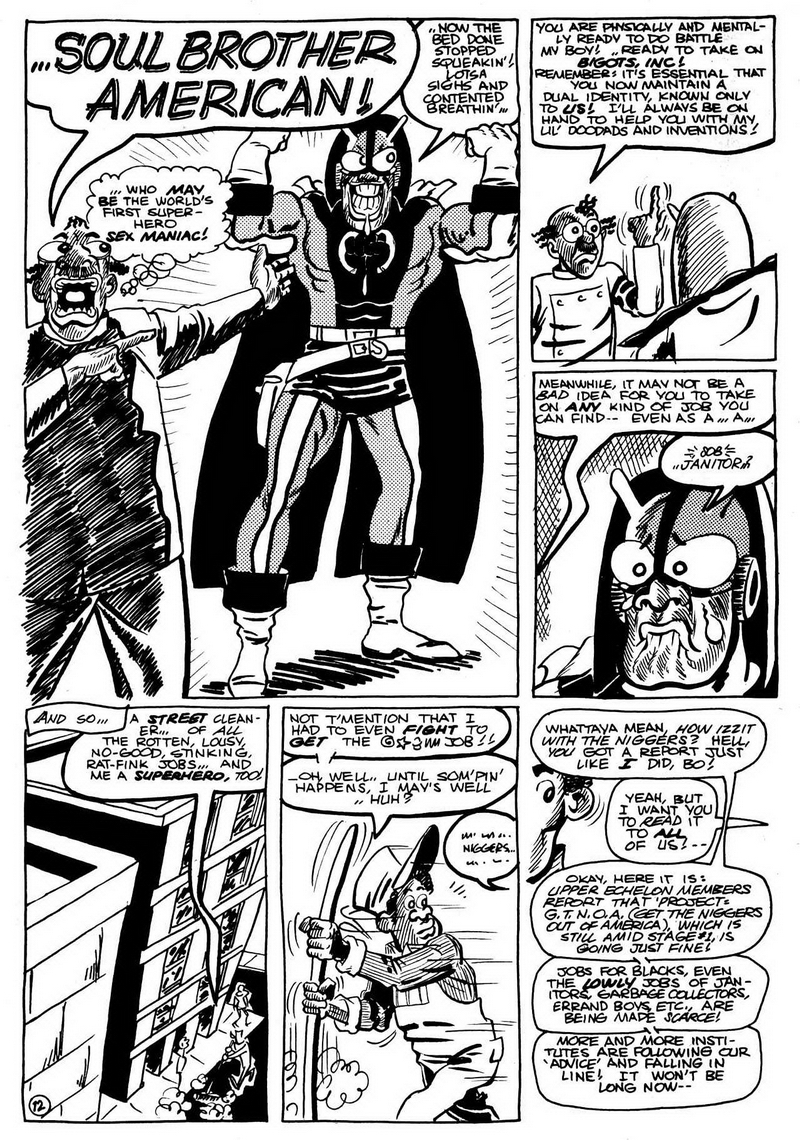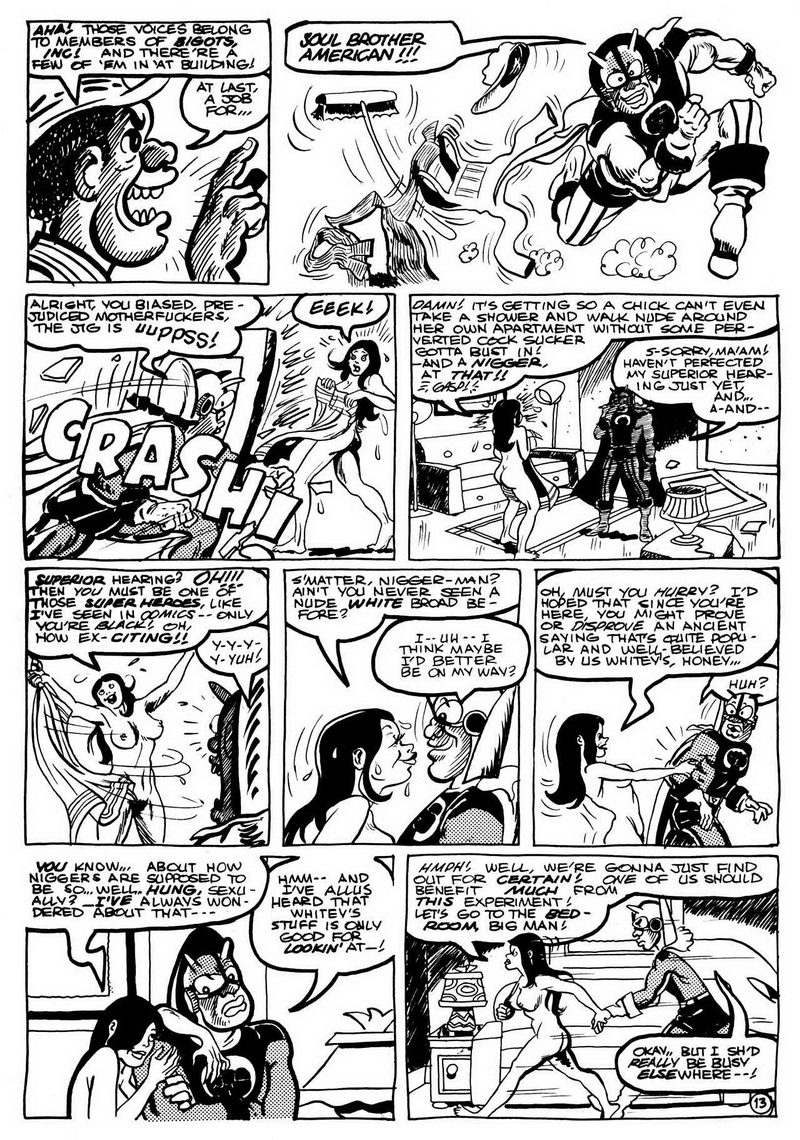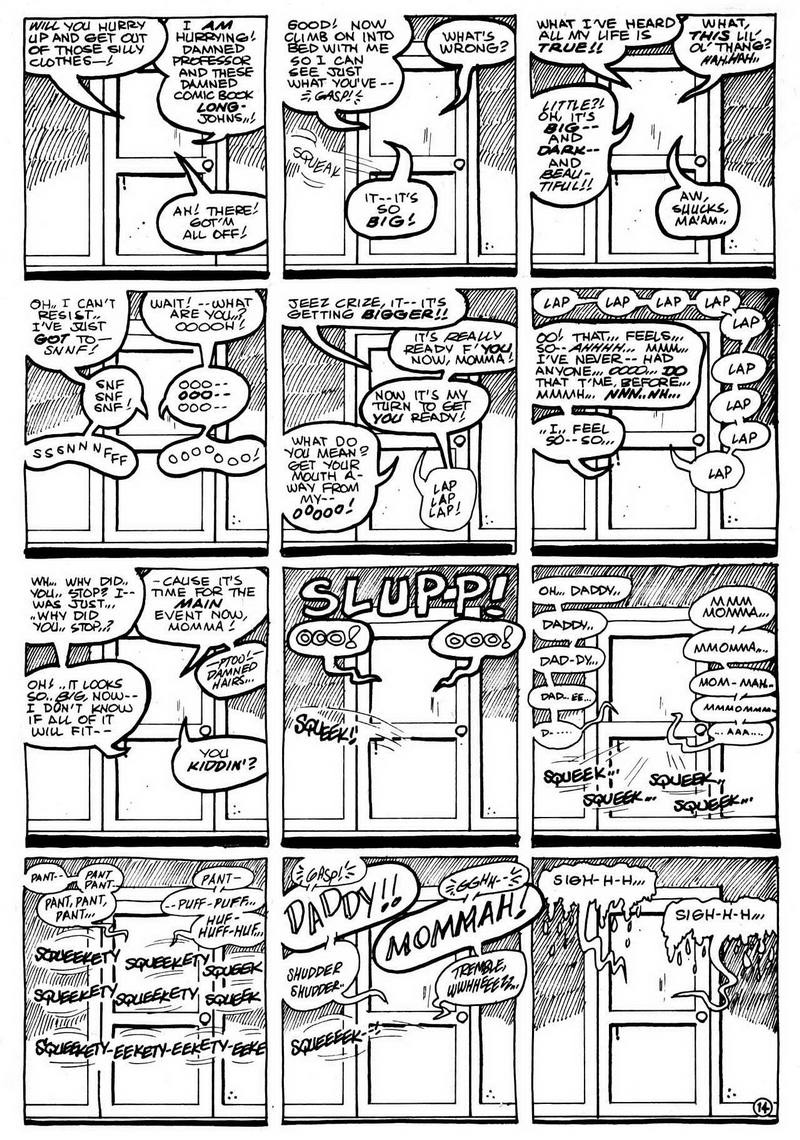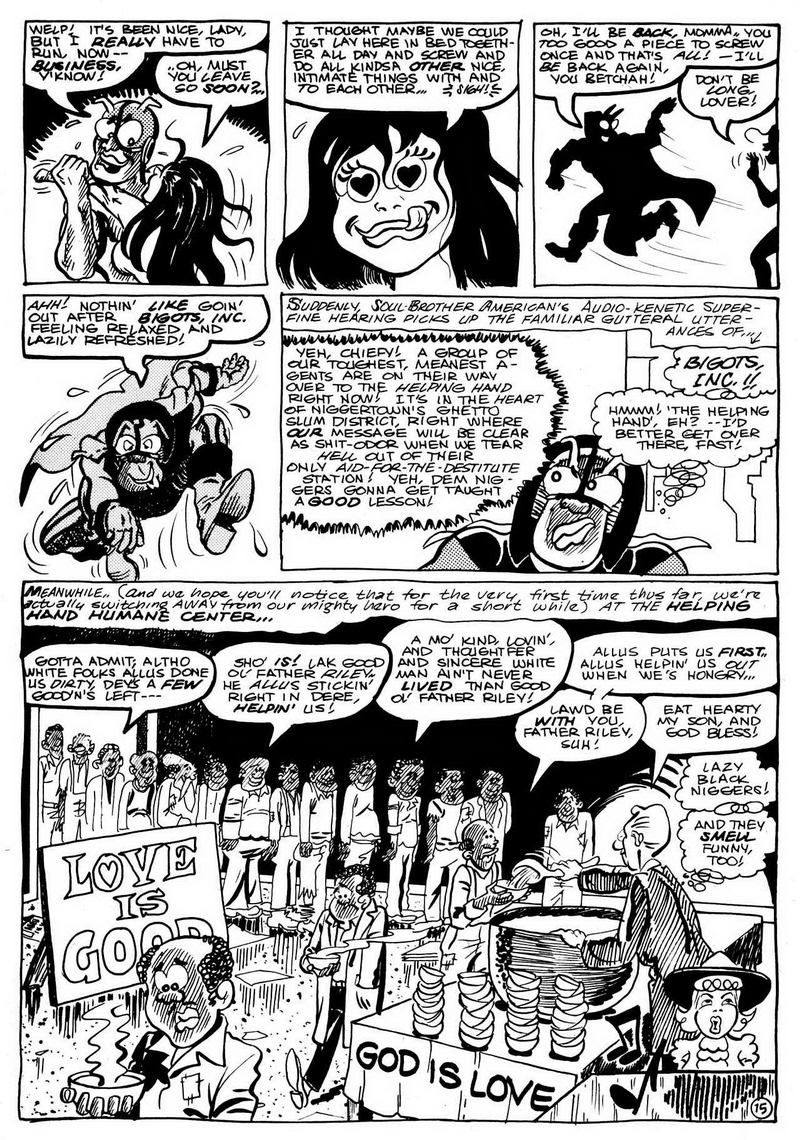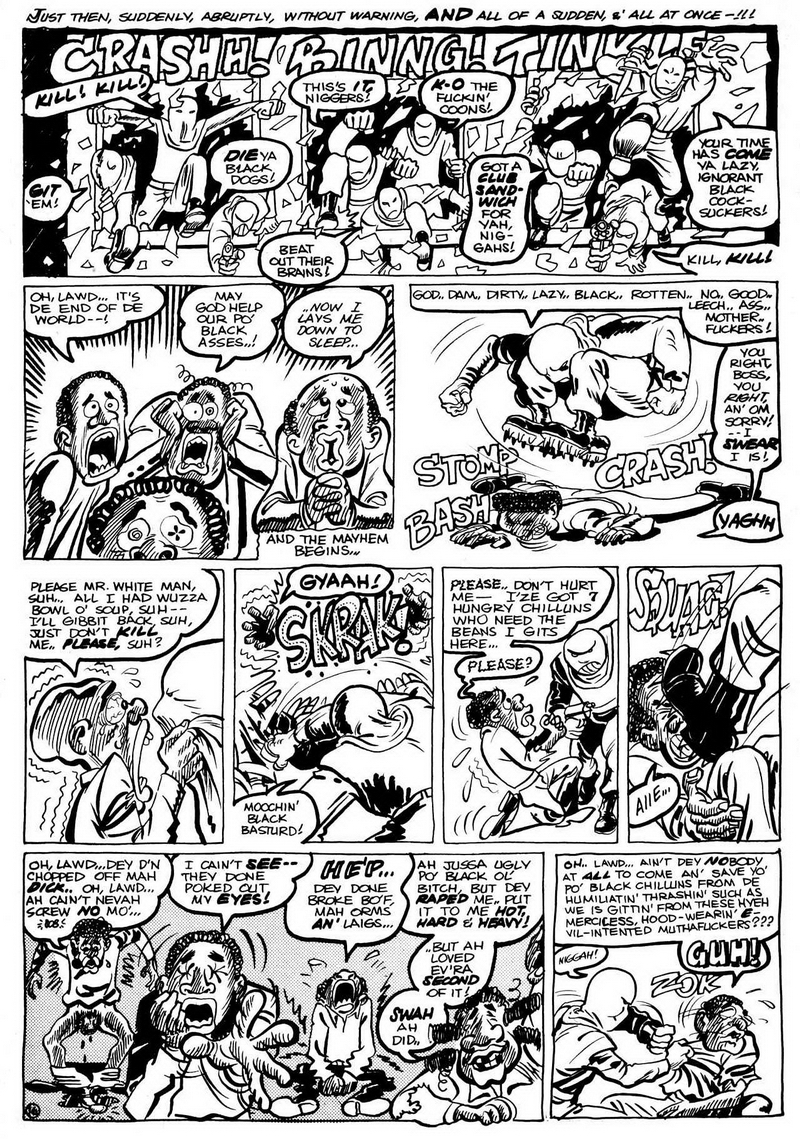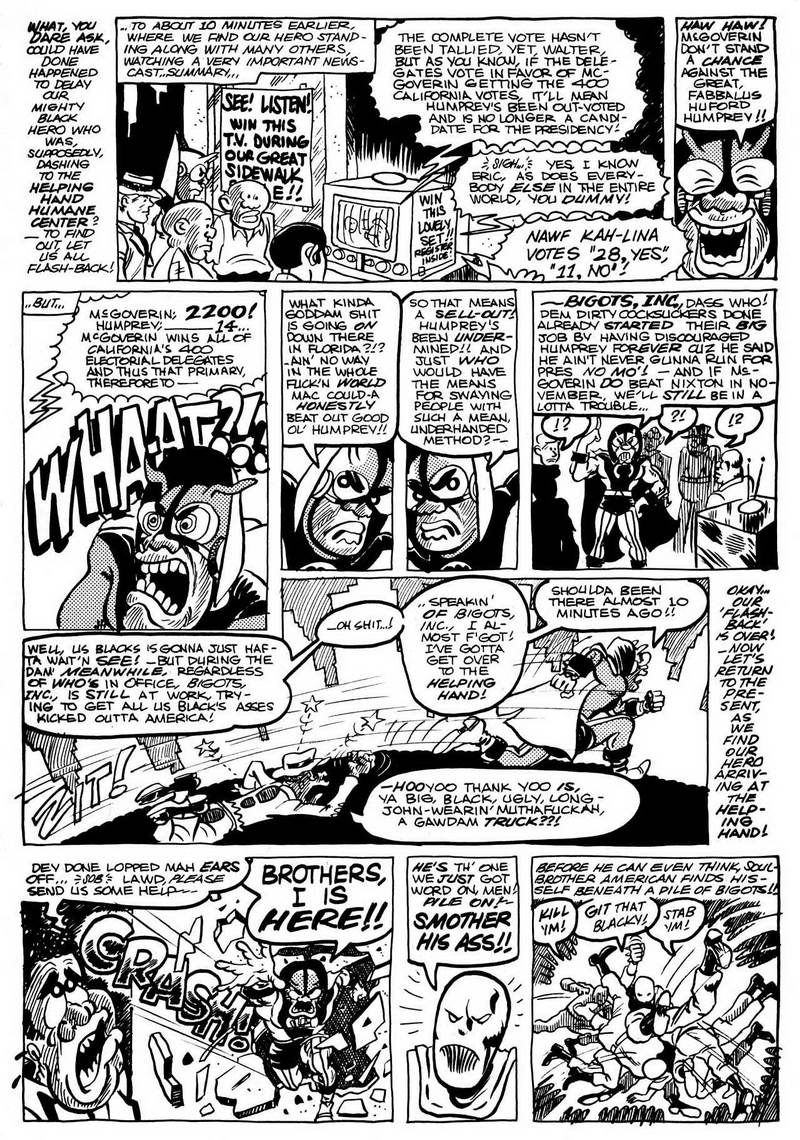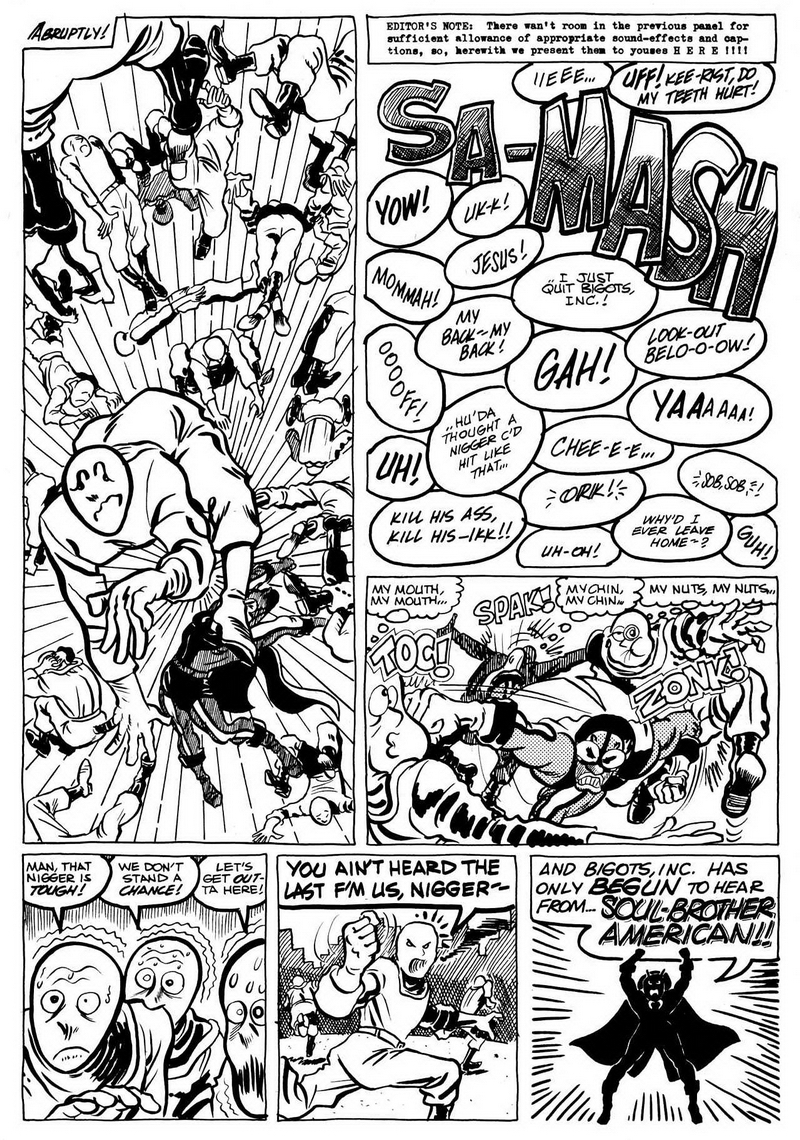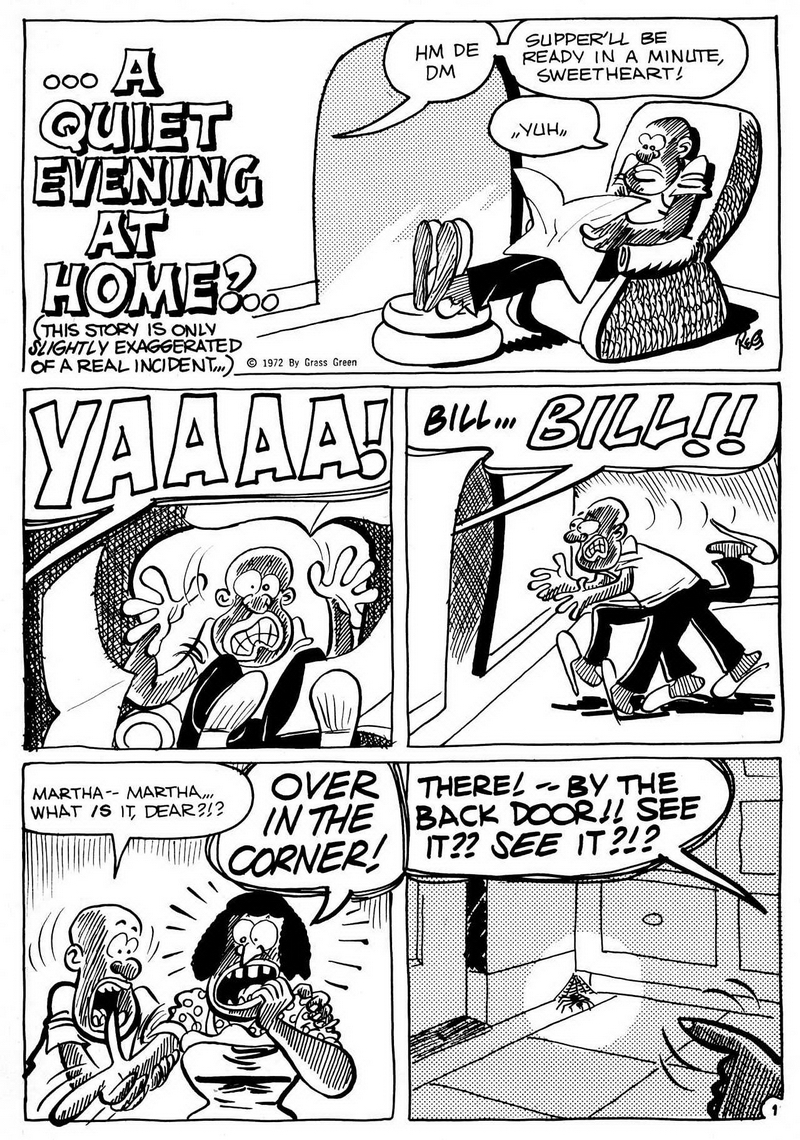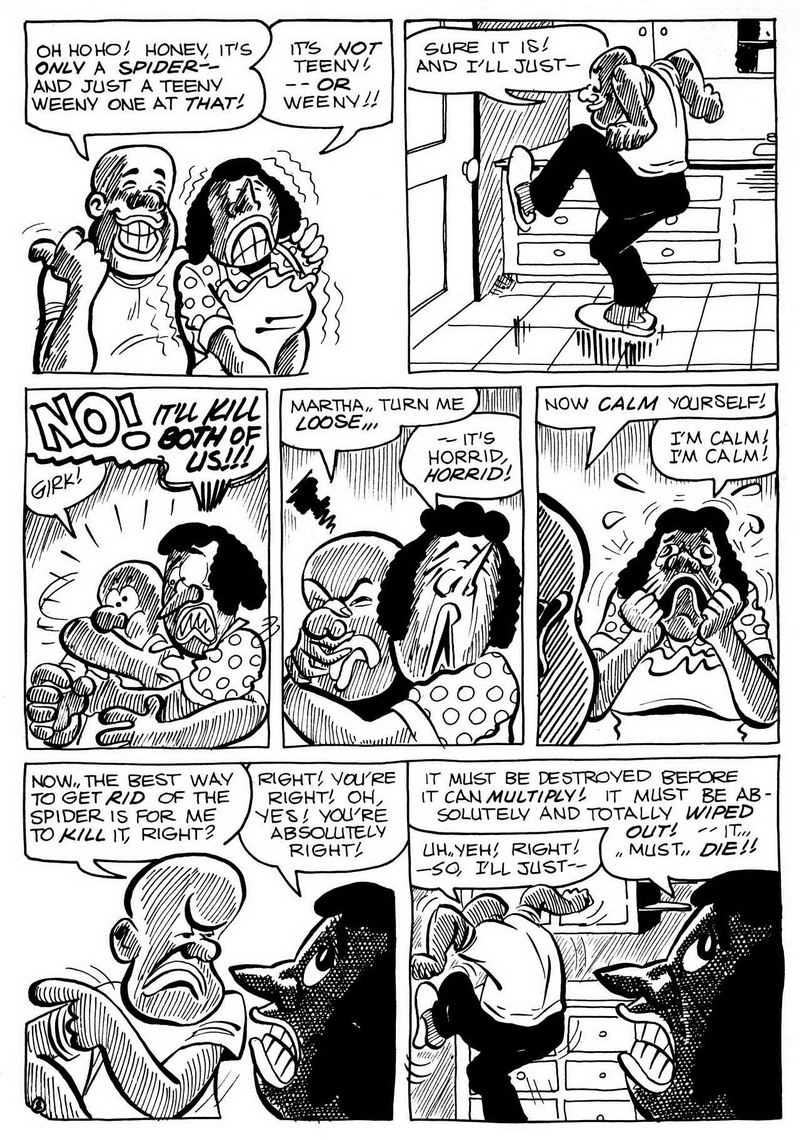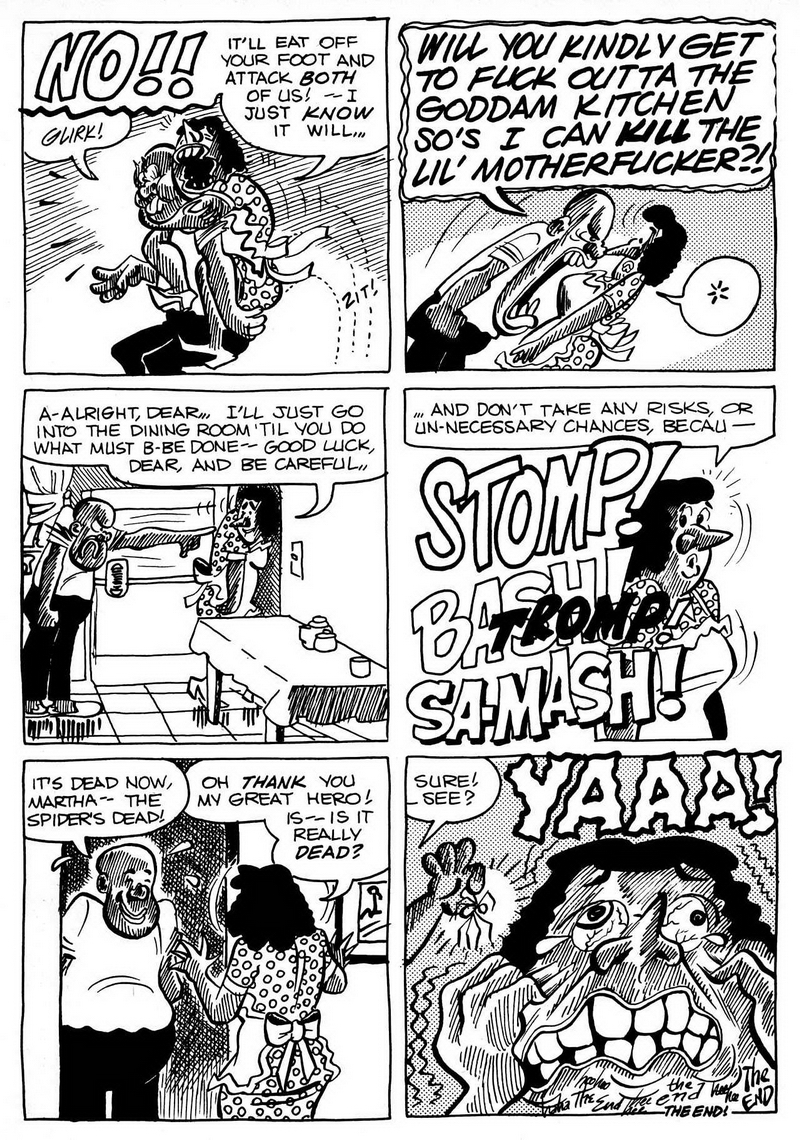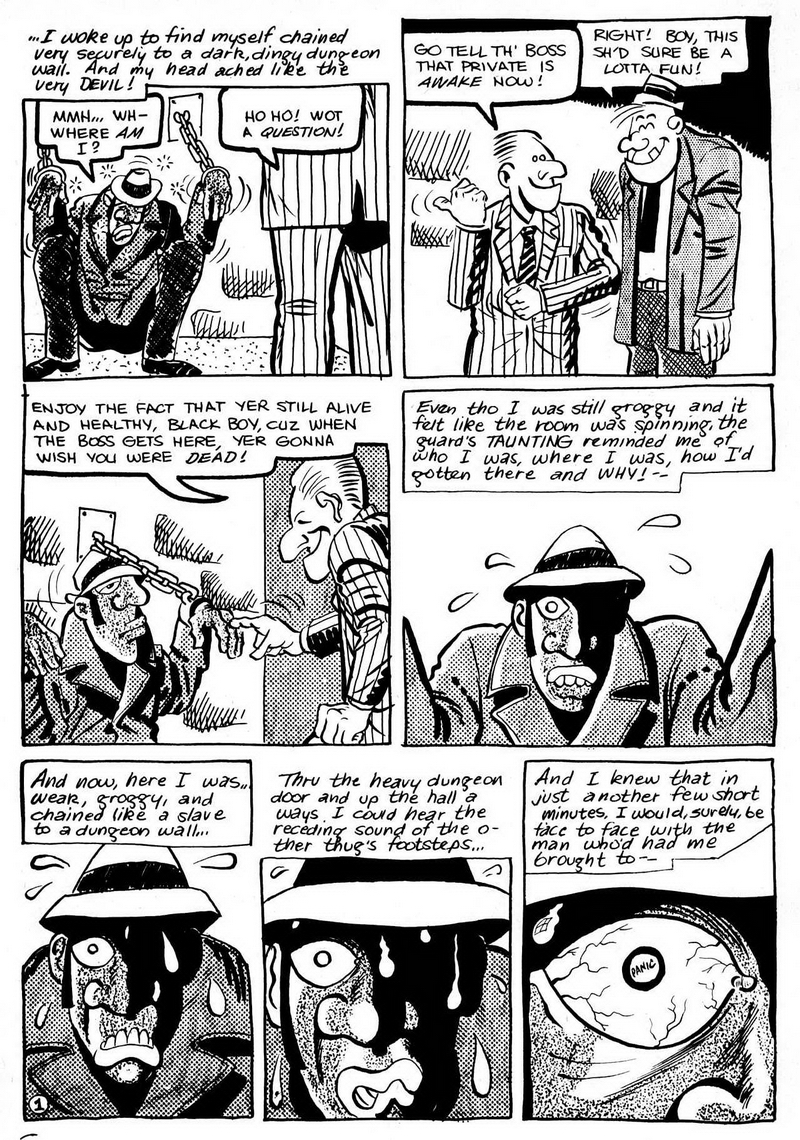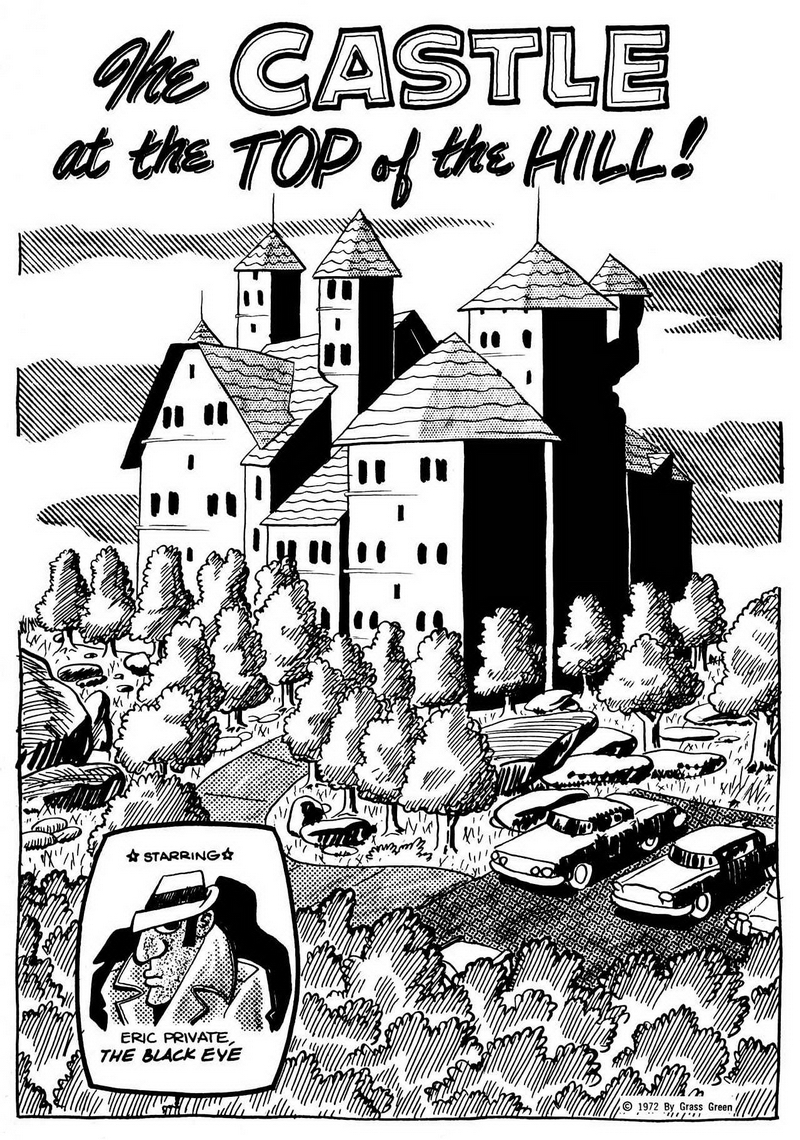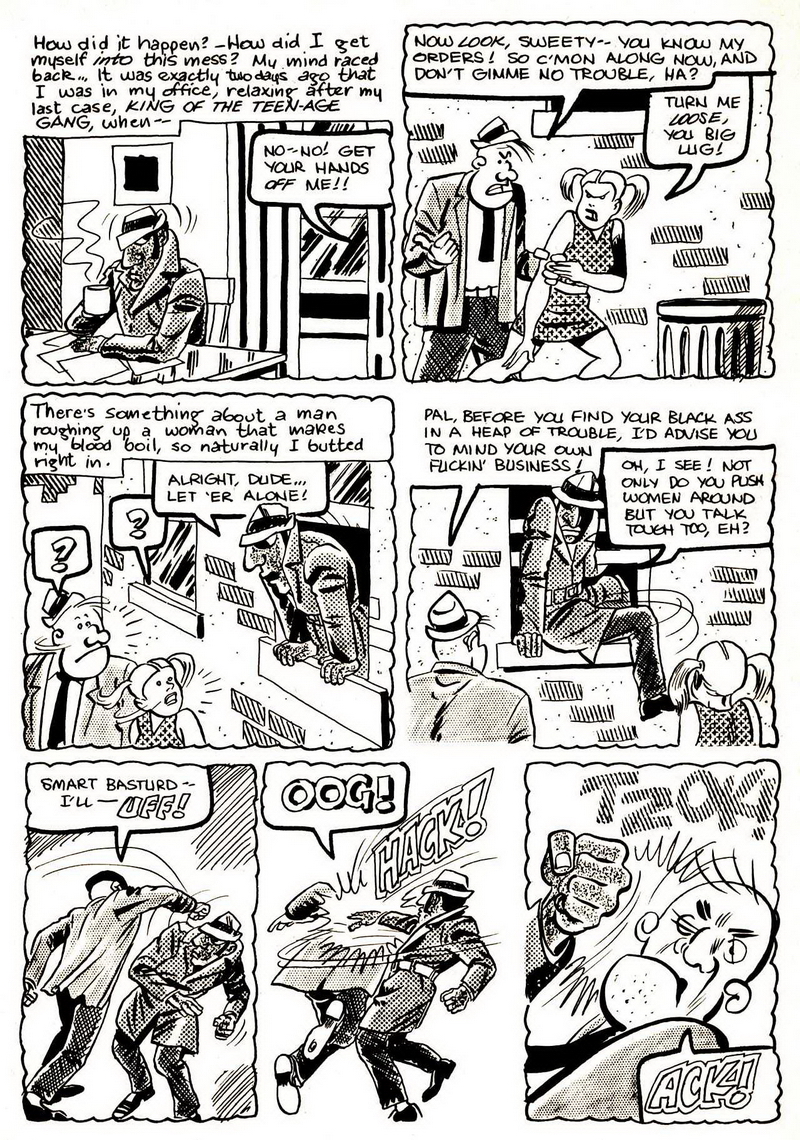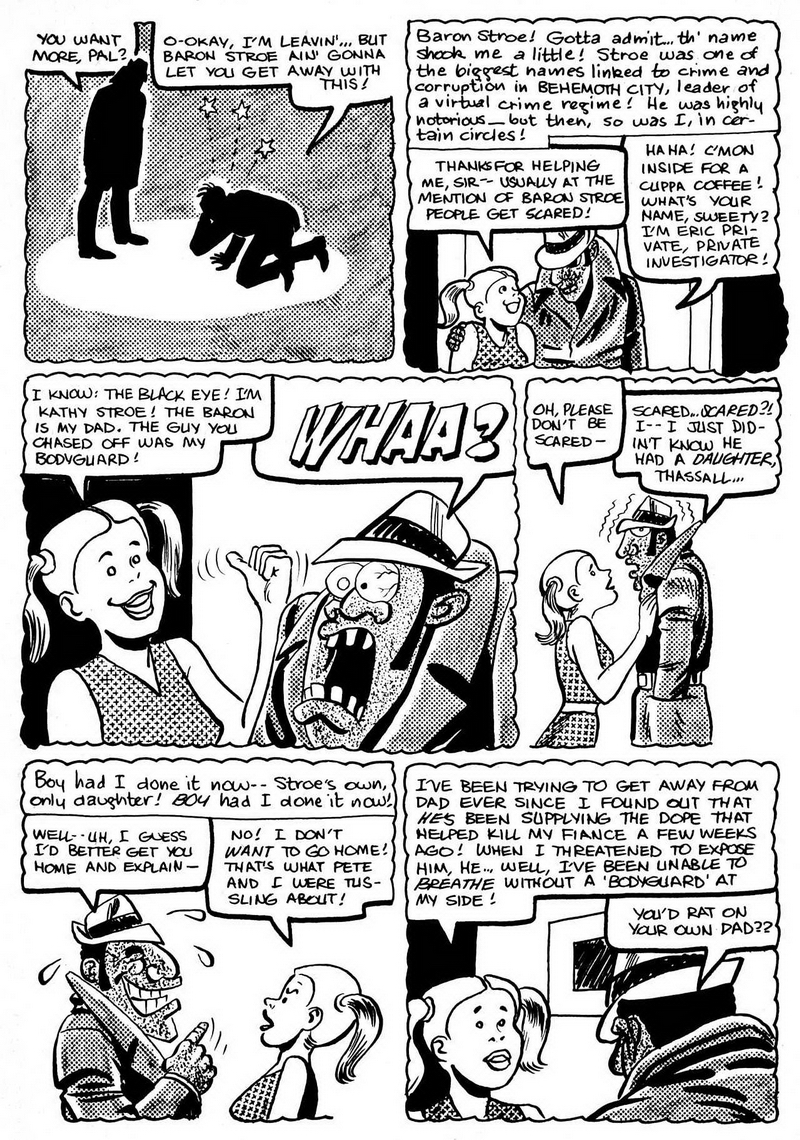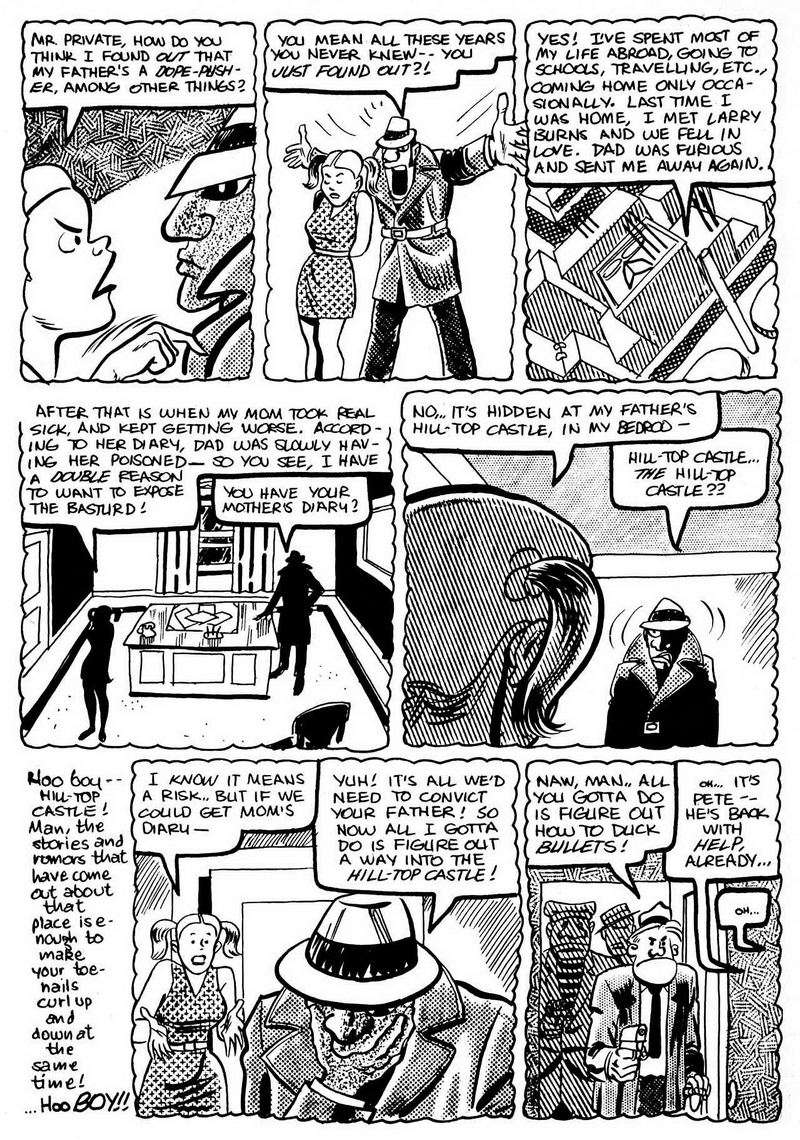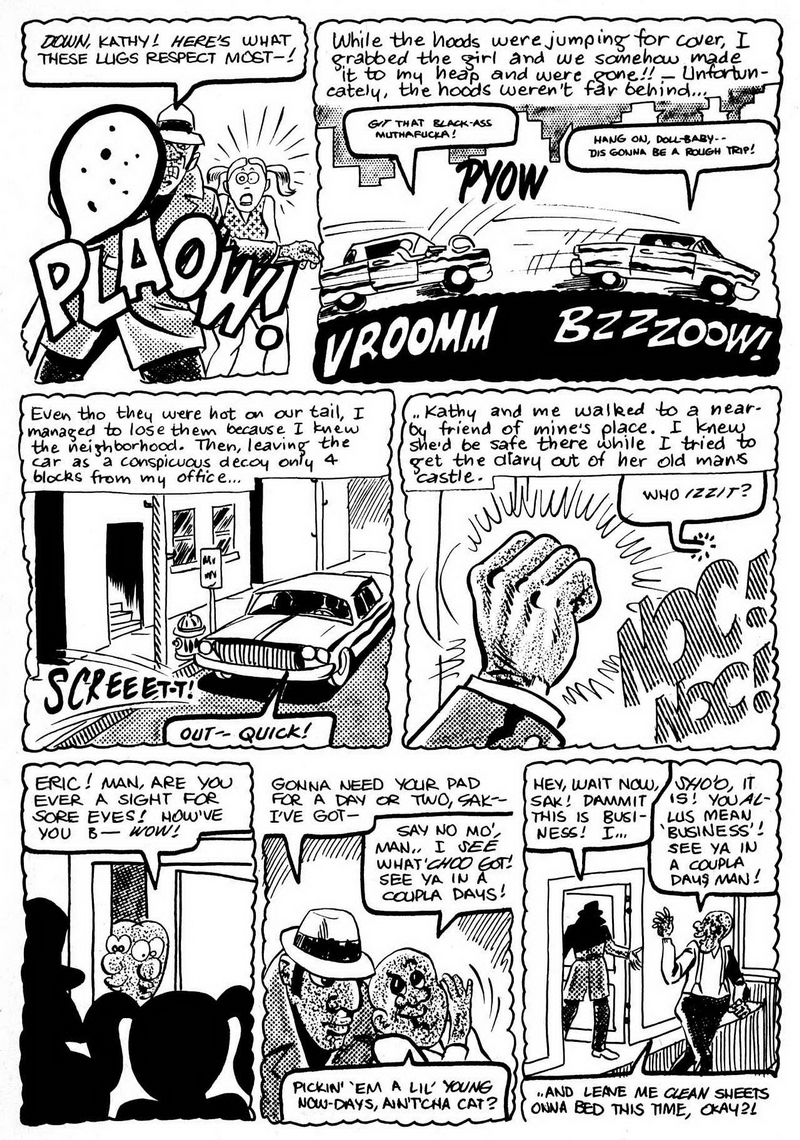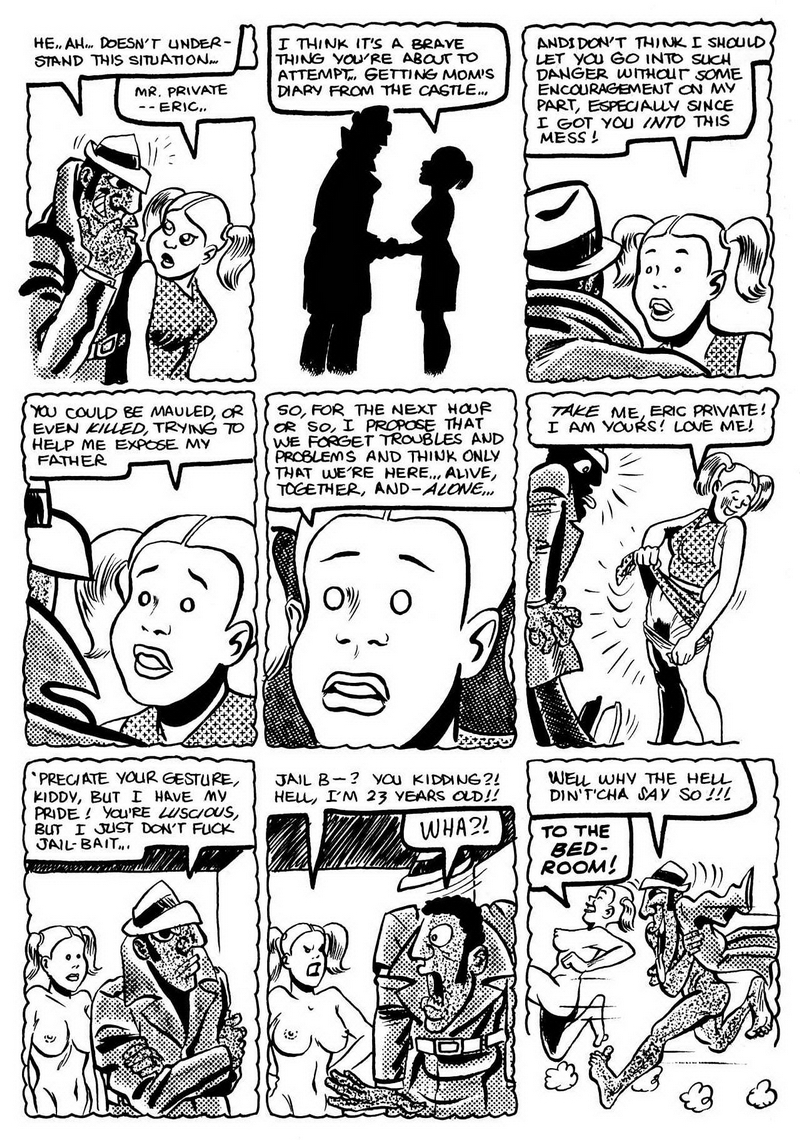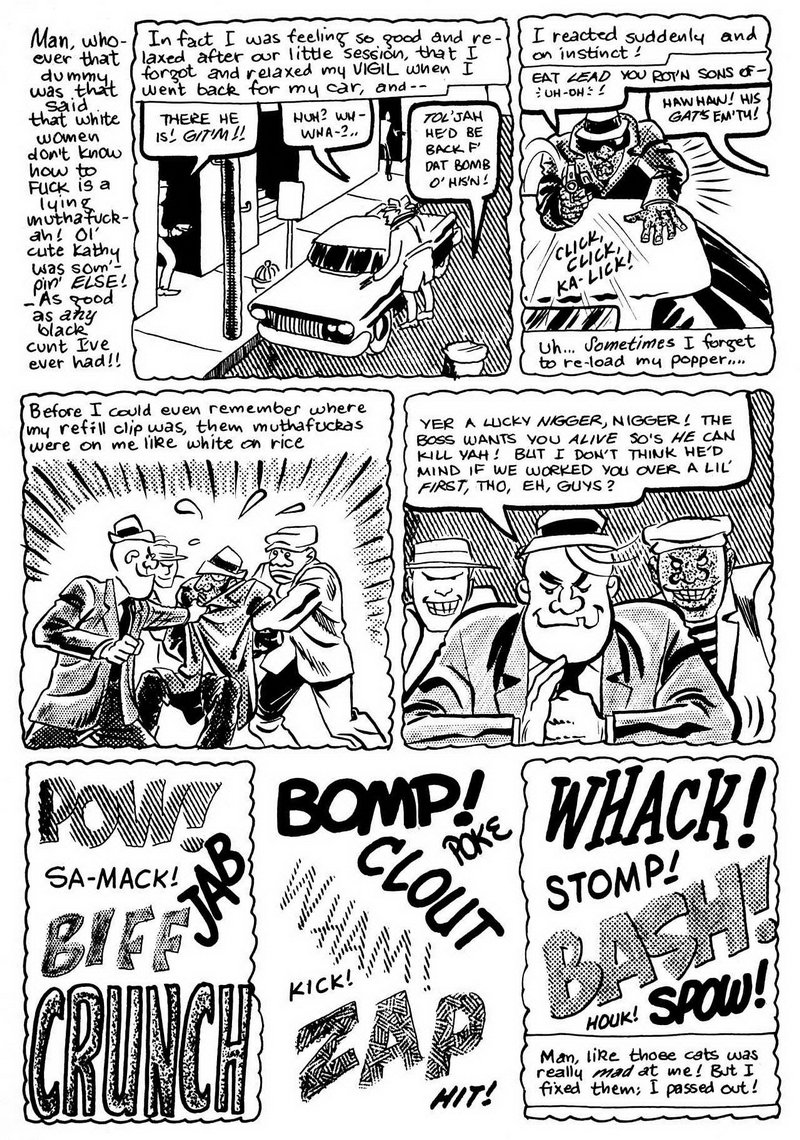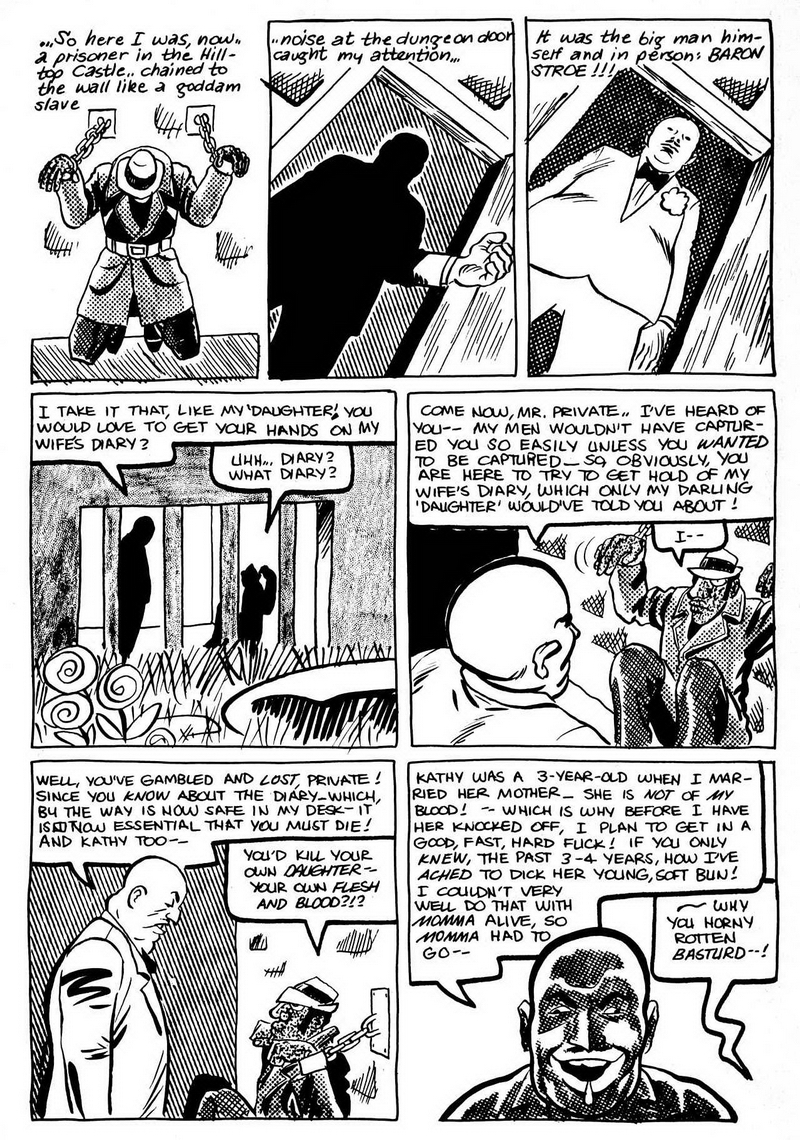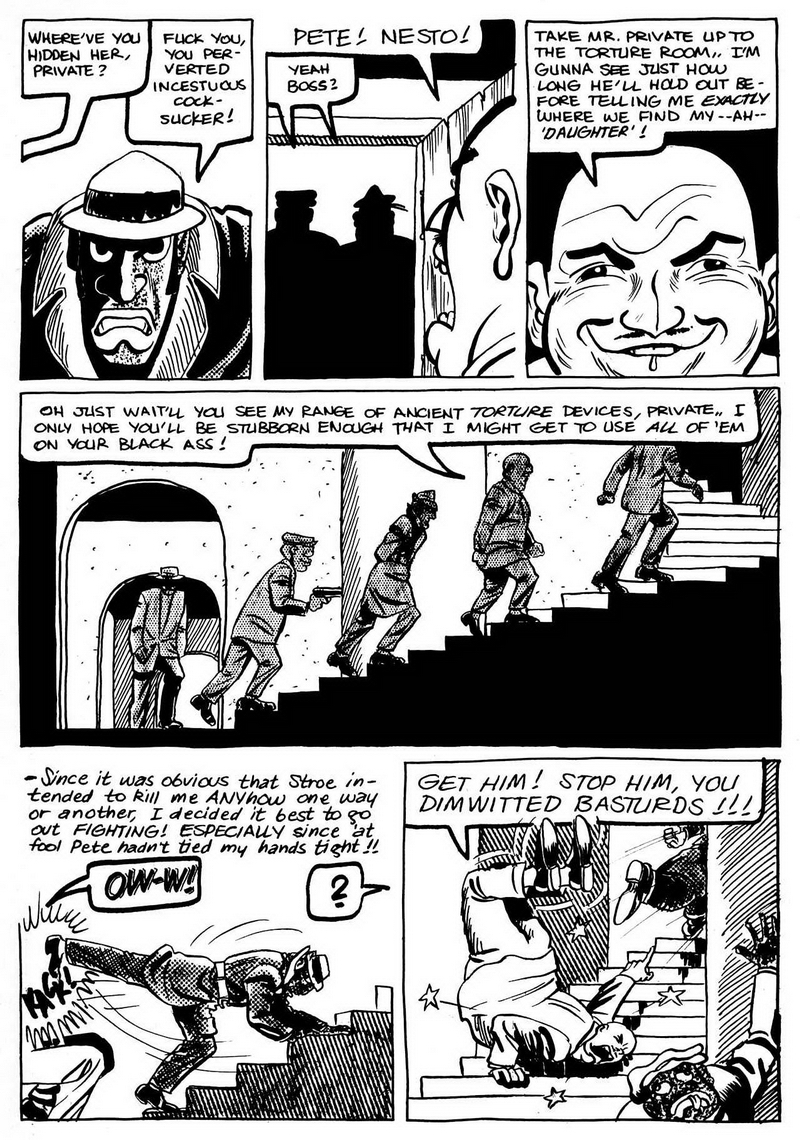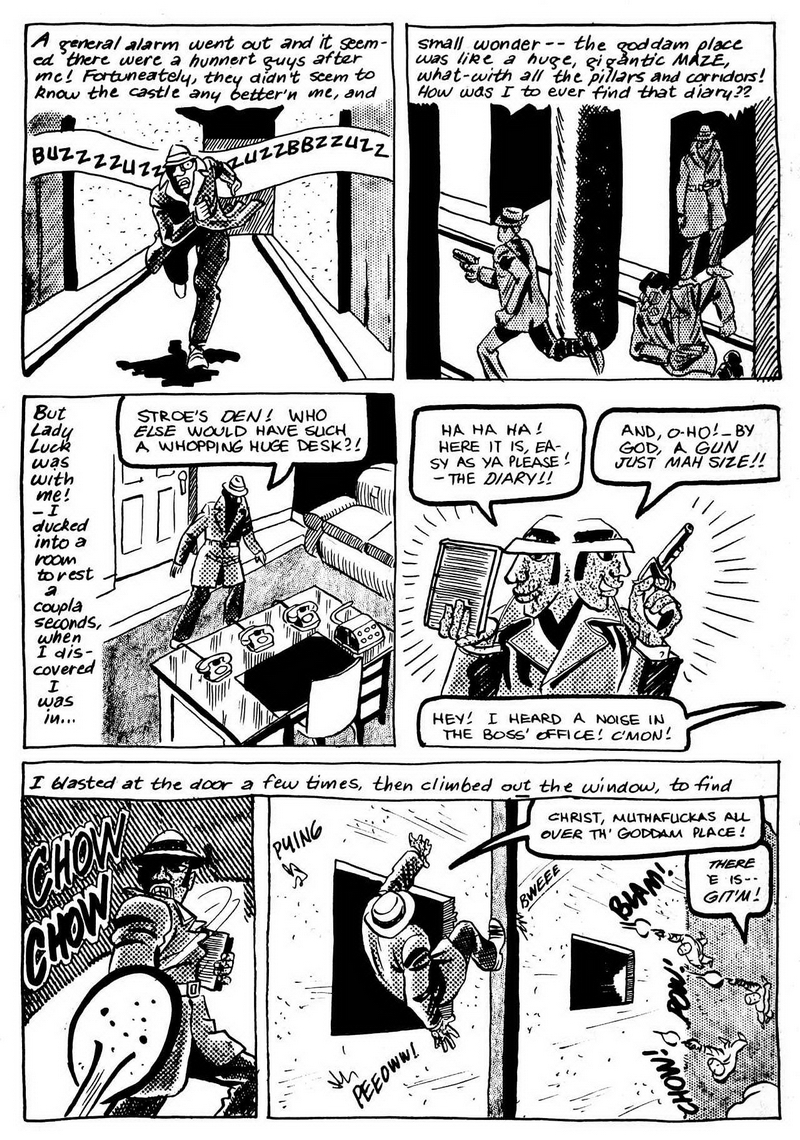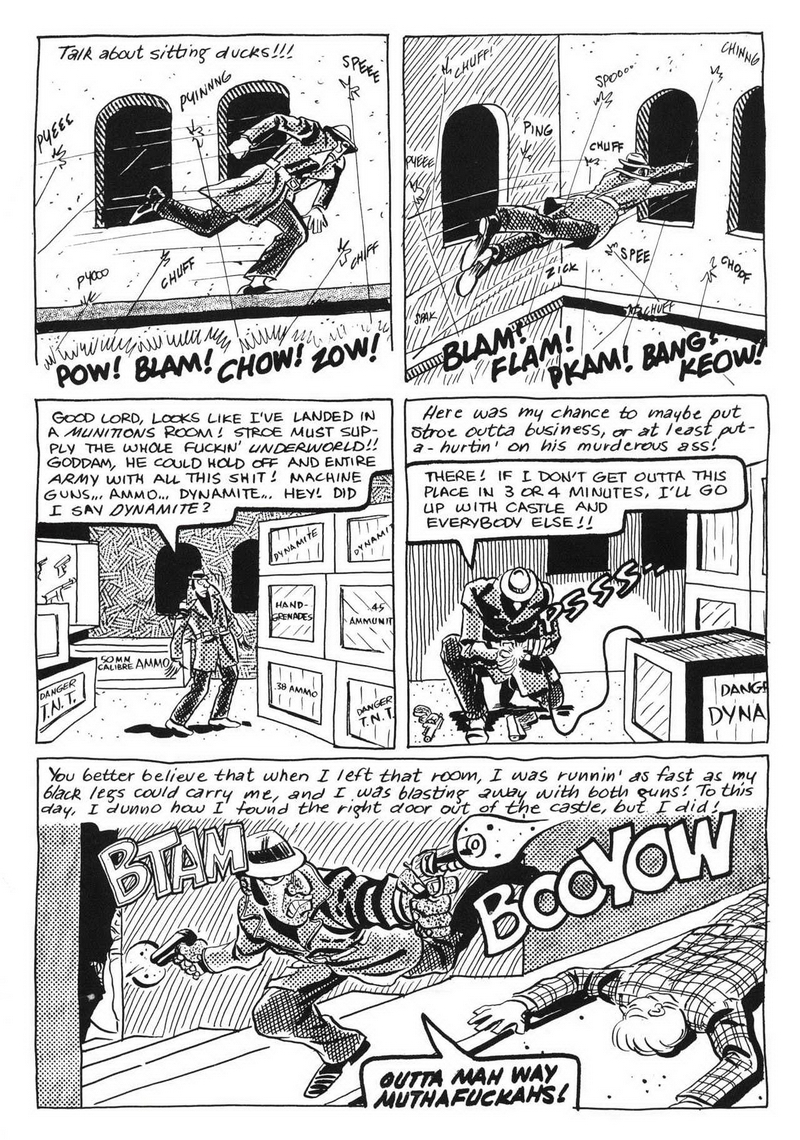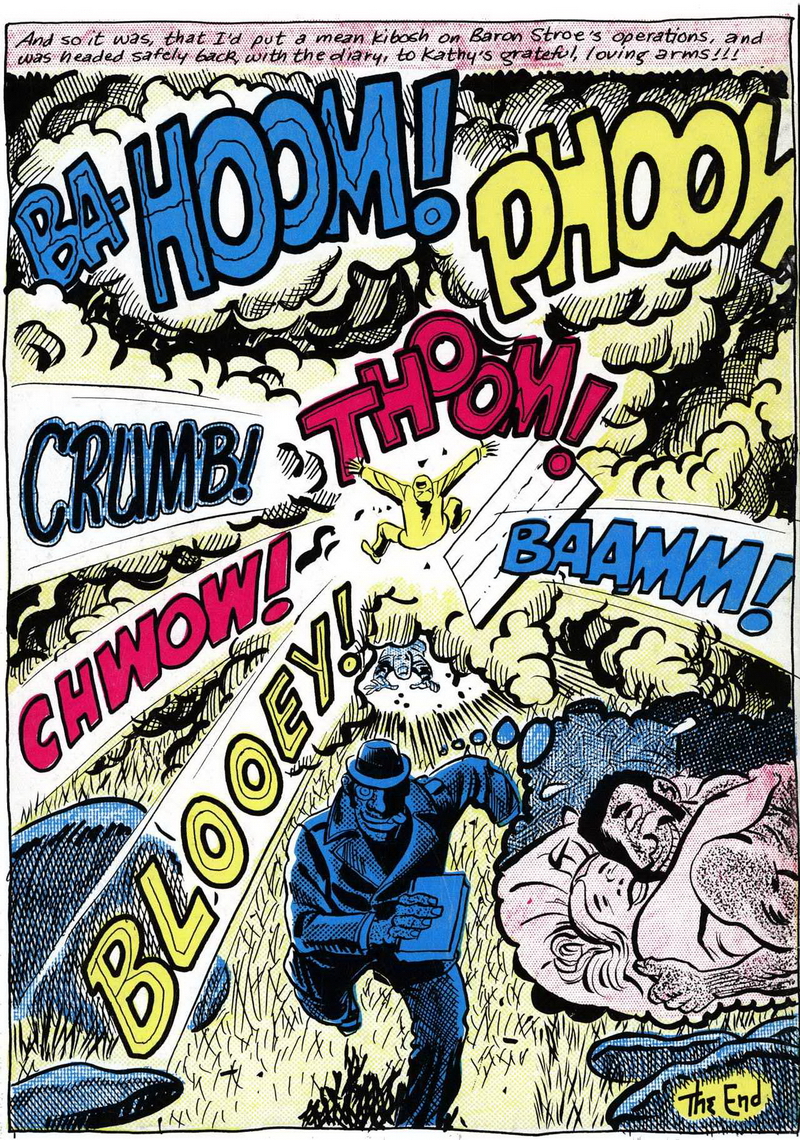super soul comics
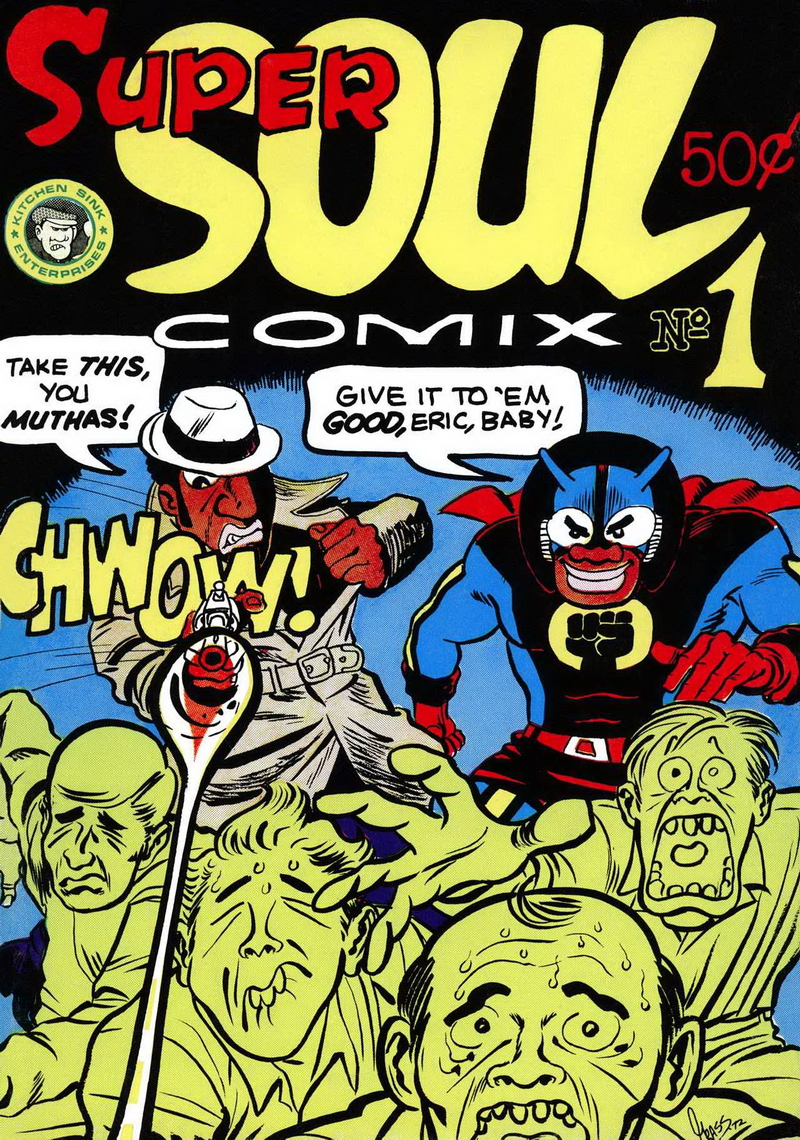
super soul comics
Kitchen Sink October 1972
In the mid 1960s Richard “Grass” Green went from being a fan artist who contributed to Alter Ego, Star-Studded Comics, Fantasy Illustrated and Rocket’s Blast Comicollector (among many others) to a professional penciler, inker, and writer for Charlton Comics. A few years later, not too long after his friend Larry Fuller produced Ebon, the world’s first comic book starring a black superhero, Richard “Grass” Green produced Super Soul Comix. It also stars a black superhero, but Super Soul happens to be about ten times more entertaining than Ebon and amply demonstrates Green’s considerable strengths as a comic-book creator.
Super Soul opens with the 18-page “Soul Brother American vs. Bigots, Inc.,” which tracks a Vietnam war hero named Marty Meathead as he comes home after a stellar, decorated six-year stint in the army. Marty is overjoyed to be back in America and can’t wait to get back to see his mom, get together with his high-school sweetheart, find a good job, get married, buy a nice house and live happily ever after.
In short order, though, Marty is accosted on the street by black thugs, finds out his high-school sweetheart has been whoring the past six years, and has all his savings from the army ripped off by his own mother. Marty somehow remains upbeat through all these travails, but he finally blows his top when he’s turned down for a job that he’s eminently qualified for. Things only get worse when he gets beat up by the cops as an innocent bystander.
Down and out, Marty is intercepted on his way home by a laboratory scientist, who offers Marty a mysterious job if he’ll follow him back to the lab. On the way, the scientist explains that there is a great conspiracy going on in town, led by a league called Bigots Incorporated, which has launched a secret plan to get rid of all black people in America. The scientist gives Marty a spiked drink and an electric charge that quickly transforms the war vet into a superhero with incredible strength, amazing brain power and super-sensitive hearing.
The lab scientist gives Marty the moniker Soul Brother American and declares him ready to battle Bigots Inc. Taking his new role to heart, Marty takes an undercover job as a street cleaner and he’s soon on the hunt for Bigots Inc. headquarters, but he’s diverted into a liaison with a horny white chick with a burning curiosity about black men and superheroes. This little excursion from his mission allows Bigots Inc. to maul and maim a bunch of poor black people, but Soul Brother American soon bursts onto the scene to save the day!
Green is an accomplished comic-book writer who crafts stories that develop real characters and real conflict, all framed by scripts that employ very authentic-sounding casual dialog. In other words, Green is a master of street talk. “Soul Brother American” injects a lot of “niggers” in its script, but Green isn’t known for toning down authentic slang. Would a white comic artist be able to get away with using the same epithet so often? Well, yeah, in the underground you can get away with just about anything, but Green’s experience in the black community certainly earns his credibility when employing the slur.
After a filler story about a married couple that kills a spider, Green provides “The Castle at the Top of the Hill!” It’s a 13-page detective adventure starring Eric Private, Private Investigator. Eric rescues a young woman named Kathy from being accosted on the streets, but it turns out that Kathy is the daughter of Baron Stroe, the most notorious criminal in the city. Eric and Kathy barely escape Stroe’s goons and hide out at a friend’s apartment, where Kathy offers Eric a roll in the hay as a gesture of gratitude. Once Eric finds out she isn’t jail bait, he jumps at the offer!
After his dalliance with Kathy, Eric lets down his guard and gets captured by Stroe’s goons on the street, who take him up to “the castle at the top of the hill!” He’s beat up and chained before being interrogated by Baron Stroe, who reveals his intention to kill Eric. Predictably, Eric manages to escape and snatch the evidence needed to put Stroe behind bars before blasting his way out of the castle. “The Castle at the Top of the Hill” is a formulaic private dick adventure with cookie-cutter villains, but Green enlivens it with his snappy dialogue and quick pacing.
Super Soul Comix is one of Green’s most mature works amonst his early comic books, and a bit ground breaking with a black superhero. Green provides a showcase for a positive, sympathetic black character that remained utterly true to his origins and culture, which is no small trick. Green passed away in 2002, but his ability to produce funny, realistic comics that appealed to everyone on the racial spectrum remains a unique talent that few have achieved.


